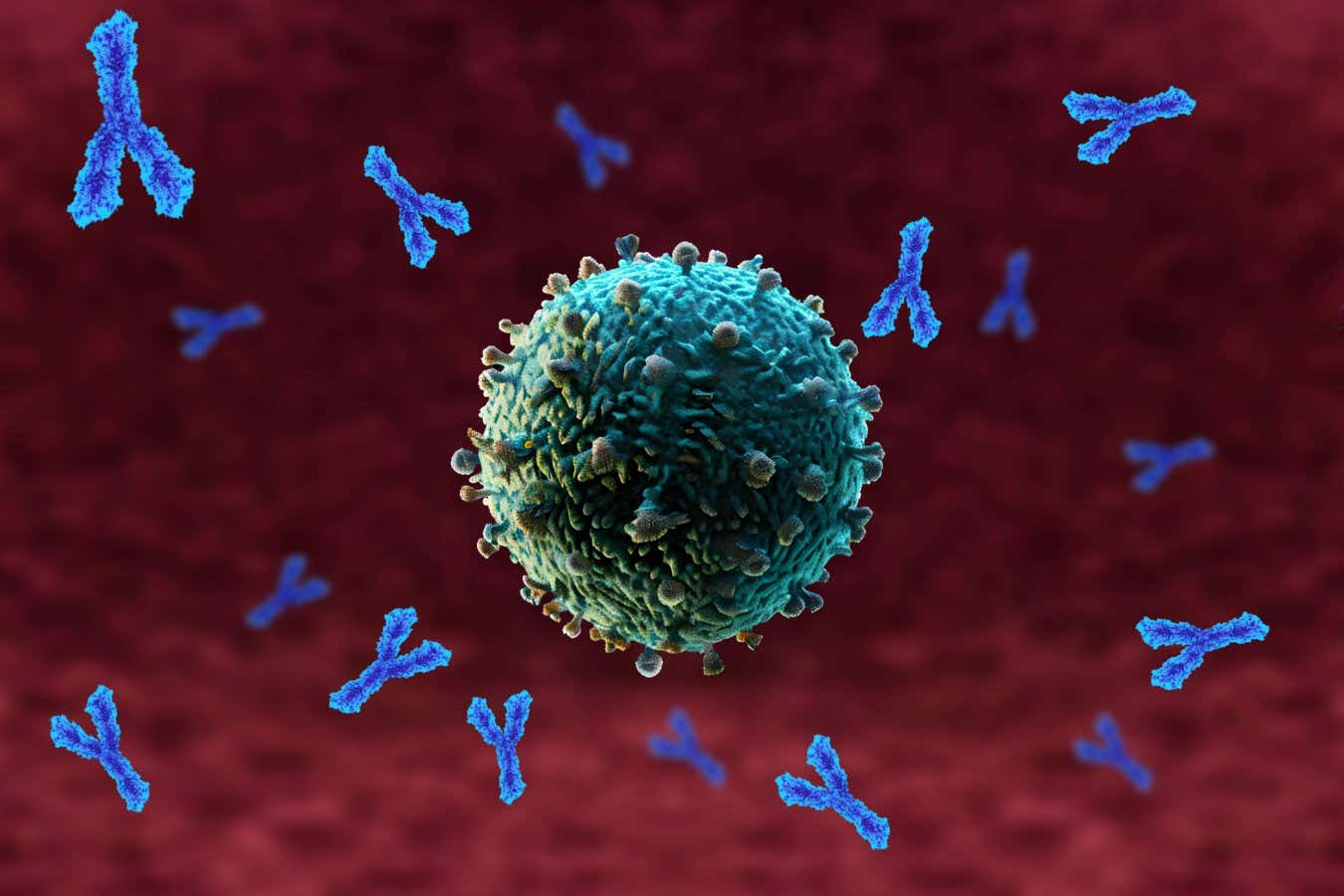A novel antibody therapy makes the immune system of old mice appear younger, allowing the animals to better fend off infections and reduce inflammation
By Grace Wade
27 March 2024
Antibodies are proteins that can target and attack certain cells
MirrorImages/Alamy
An experimental treatment rejuvenates the immune system of older mice, improving the animals’ ability to fight infections. If it works in humans, the therapy could reverse age-related declines in immunity that leave older adults susceptible to disease.
These declines may be due to changes in our blood stem cells, which can develop into any type of blood cell – including some key components of the immune system. As we age, a larger proportion of these stem cells become predisposed to producing some immune cells over others, says Jason Ross at Stanford University in California. This imbalance impairs the immune system’s ability to fight infection. It also fuels chronic inflammation, which accelerates ageing and increases the risk of age-related illnesses like heart disease, cancer and type 2 diabetes.
Read more
Ageing is inevitable, but we may soon treat it like any other disease
Advertisement
Ross and his colleagues developed a treatment using antibodies, or proteins that recognise and attack certain cells, to target these biased stem cells. They then tested the treatment in six mice between 18 and 24 months old, which is roughly equal to an age of 56 to 70 years in humans.
A week after receiving an antibody injection, the mice had about 38 per cent fewer of these aberrant stem cells, compared with six rodents of the same age that didn’t receive the treatment. They also had significantly greater amounts of two types of white blood cells crucial for recognising and combatting pathogens, as well as lower levels of inflammation.
“You can think of it as kind of turning back the clock,” says Ross. “We’re making the proportion of these [immune] cells more similar to [those of] a younger adult mouse.”
